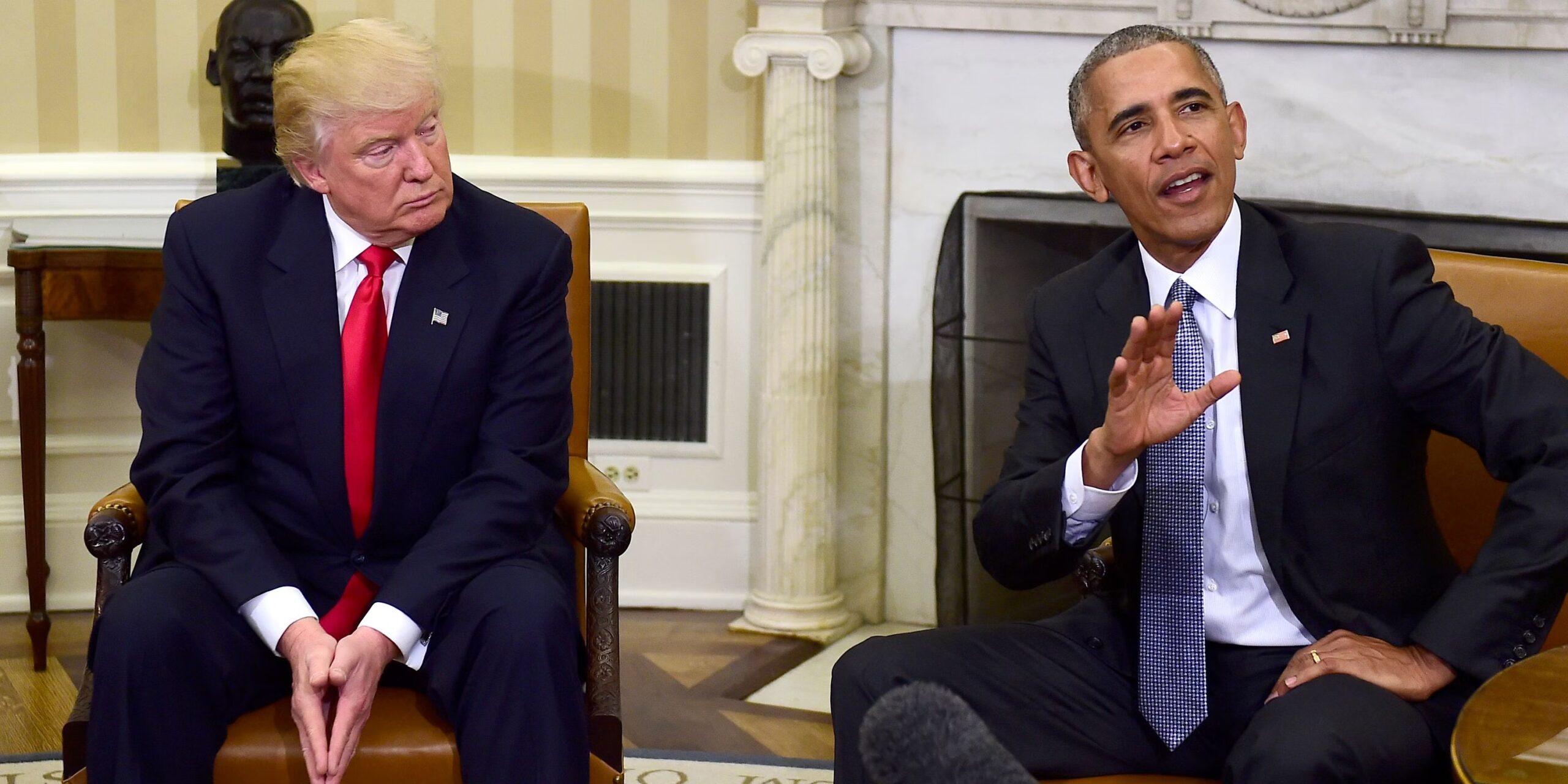
President Donald Trump and his predecessor Barack Obama have met face-to-face just once—on November 10, 2016, two days after Trump’s initial election victory. That meeting in the Oval Office was reportedly awkward, marking a brief and uneasy encounter between the two leaders.
Fast forward nearly nine years, the old tension resurfaced dramatically this week. On Sunday, Trump posted an AI-generated video on social media depicting FBI agents storming the Oval Office, forcibly removing Obama while Trump grinned, with “Y.M.C.A.” playing in the background.
Trump’s long-standing fixation on Obama—whom he often refers to by his full name, “Barack Hussein Obama”—has centered largely on the Russia investigation tied to the 2016 election. This week, that fixation took center stage again, sparking a rare public rebuttal from Obama’s office and reviving one of the most bitter rivalries in recent presidential history.
New Accusations and Political Drama
On Wednesday, Director of National Intelligence Tulsi Gabbard publicly accused Obama of orchestrating a “manufactured” intelligence assessment aimed at undermining Trump’s presidency, calling it a “years-long coup” and “treasonous conspiracy” against the American people. Gabbard claimed criminal referrals had been made to the Justice Department.
Trump echoed these accusations during a press interaction, pivoting from a question about Jeffrey Epstein’s case to a tirade against Obama, branding him guilty of treason and leading a coup with Hillary Clinton.
Critics argue Trump’s accusations serve as a distraction from his own controversies, including his handling of Epstein-related documents, but Trump’s animosity toward Obama extends far beyond political strategy. His aides describe his disdain as part personal grievance, part tactical attack against someone he sees as both unfairly popular and the root cause of many of his political challenges.
The Roots of Resentment
Trump’s resentment traces back more than a decade, beginning with his promotion of the “birther” conspiracy questioning Obama’s birthplace. Public events like the 2011 White House Correspondents’ Dinner, where Obama mocked Trump on stage, only deepened the animosity. Though the two appeared cordial during the 2016 transition, aides now reflect on that period as deceptive, with Obama allegedly orchestrating intelligence operations against Trump behind his back.
Since the 2016 meeting, the two have barely interacted, aside from polite exchanges at state events. Michelle Obama has even reportedly avoided appearances where Trump might be present.
Meanwhile, members of Trump’s base express frustration over his handling of the Epstein files, with some calling for resignations within the Justice Department. Congressional pressure is mounting to release more documents tied to Epstein’s case, uniting unlikely allies across party lines.
Author’s Opinion
The ongoing feud between Trump and Obama symbolizes a deeper shift in American political culture—from traditional decorum to relentless personal conflict. This rivalry has fueled division, distracted from governance, and shaped the media narrative for nearly a decade. Moving forward, healing this divide is essential if the country hopes to focus on policy over personal grudges.
Featured image credit: Heute
For more stories like it, click the +Follow button at the top of this page to follow us.
